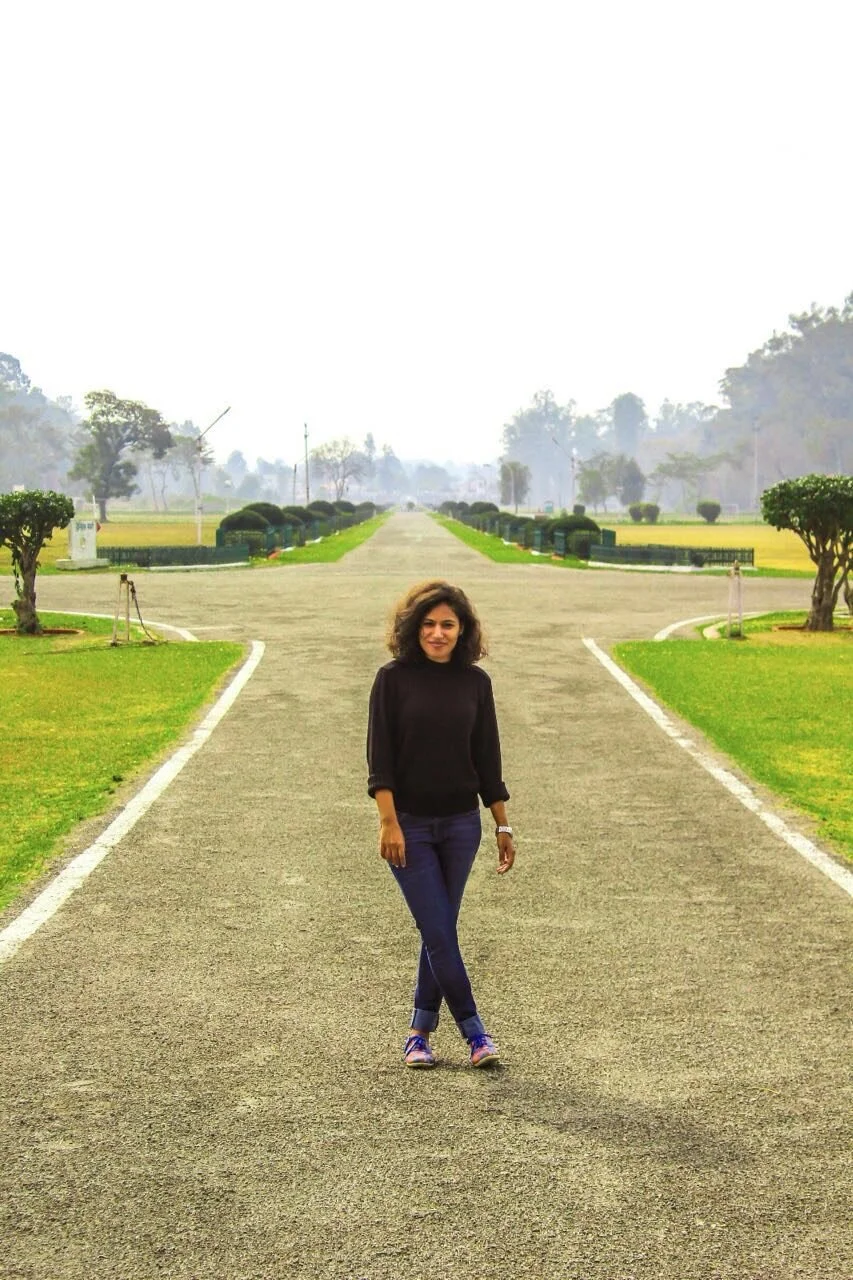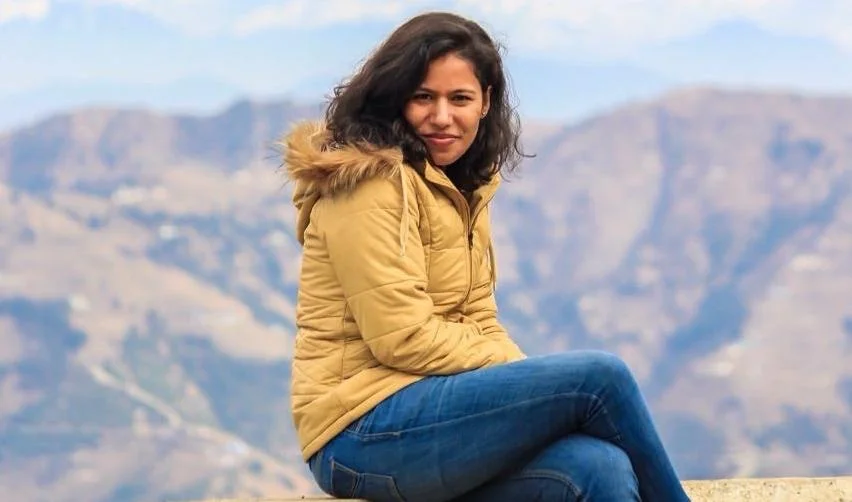Alumna Update: Neha Vijay
Neha Vijay is a 2017 scholar who attended Paris School of International Affairs, Sciences Po to pursue an MA in Global Studies - International Security.
She is currently a Trust & Safety professional with Wikimedia.
I feel quite fortunate to be among those who love what they do and wake up every morning with a sense of purpose. I am a Trust & Safety professional; those who are familiar with this work can tell how assorted are the problems that we try to resolve every single day. Within Trust & Safety, one may have defined roles and a unique set of things to look at, yet, there’s never a clear demarcation. One moment you are working on a policy, the next, coordinating an investigation with Law Enforcement followed by examining indecent or sensitive content and figuring out how to shield others from having to look at it too, before going back to your policy work. This is how my days look like, and I would not have it any other way.
Around six years ago, I realized that I didn’t want to troubleshoot network issues anymore. I was a network engineer for three years then. I wanted to step into the security-industry and do something more socially consequential. I didn’t know then how big of an impact I’d be able to make, but when the opportunity presented itself, I took it and walked into an industry I was unfamiliar with then.
My work in security has been continually evolving. First, it was technical research for security projects, then it was about monitoring regional geopolitics in South Asia and preparing terrorism watchlists for countries. In less than three years, the core counter-terrorism work quickly evolved into a broad framework of countering violent extremism (CVE) online. Even this task had barely taken a solid shape when I already started sensing the wave shifting towards dialogues around curbing ‘hate speech’ and ‘fake news’. It was like the issues were zooming out of the regional scope and becoming more and more global at a hurried pace. It was at this point that I decided that my regional work and knowledge need broadening, and I decided to put my career on pause and go for Master’s studies.
After having received the Inlaks Shivdasani Scholarship in 2017, I joined Sciences Po’s Paris School of International Affairs in their Advanced Global Studies Program to specialize in International Security. Even in retrospect, I couldn’t have chosen a school better than the SciencesPo.
Europe had become the epicenter of the global immigration crisis and France was slowly trying to come out of the state of emergency it was in since 2015. Sciences Po allowed me to observe these changes from close. Moreover, not only was I taught by teachers who were the serving policy advisors of different European States but was also sharing a classroom with students who had served or volunteered in some of the most complex regions in the world. I was steadily surrounded by people who brought in diverse perspectives and ideas from all around the world and spoke five to seven languages. It still doesn’t cease to amaze me.
Sciences Po taught me to look beyond the security bubble. As a student of the Advanced Global Studies Program, I was one of the 30 students who have already been working in different fields for at least five years. This group came from every imaginable professional domain. We had humanitarian workers, environmentalists, lawyers, bankers, and more in one group. Thus, while I got to specialize in International Security by studying alongside the two-year program students and doing boot camps to make up for the reduced time, I was always in that group of 30. I spent a lot of time tich them in intense policy workshops learning to shape global policies in different fields.
After graduating from Science Po in July 2018, I spent some time in London partnering with a firm called Moonshot CVE (Countering Violent Extremism) in their collaborations with various internet platforms to counter online extremist content.
In 2019, I joined the Wikimedia Foundation as a Trust & Safety Specialist and since then, I have been helping the foundation realize its objective of building a Universal Code of Conduct and making the Internet a safer place for over forty million users. It is a known fact that bad actors are more aggressive and often more creative in their pursuits. Sadly, the way the Internet functions makes it easier for such voices to reach much farther and at a faster pace, sometimes allowing them to dominate platforms. Most of the policies to counter such aggression are made using a top-down approach. This leaves the users who are getting affected by them on the periphery. Cognizant of these challenges, and also following the way Wikimedia’s ecosystem functions, we knew it was necessary to involve our volunteer editors in the dialogue to shape the global policies.
For those of you who don’t know much about the Foundation, it is the non-profit organization that runs Wikipedia and many other purposes bound educational projects such as Wikiquote, Wikidata, WikiCommons. It has a community of millions of global editors who run projects in close to 400 languages. Together they constitute a movement of sharing free knowledge across the globe.
DIAC images / CC BY (https://creativecommons.org/licenses/by/2.0)
Leading the discourse on the Universal Code of Conduct, I initiated dialogues with thousands of Wikimedia editors from all around the world. I heard their stories, their experiences with abuse, harassment, and toxic behavior and listened to their ideas of how they would like those issues to be addressed. Taking all those inputs into account, we finished creating a draft code of conduct in October this year. But the task is far from done. A policy is not a policy until it is properly enforced. Starting in January 2021, I will initiate more conversations with Wikimedia’s volunteer community in diverse languages, this time focusing on enforcement pathways. I look forward to creating a collaborative solution to complex issues on the internet together with our users.
In pursuing the larger policy work, I haven’t neglected other issues I deeply care about. My passion for preventing or mitigating real-life threats emerging from content on online platforms has only solidified further. I continue to work on terrorism issues and all other issues arising from having sensitive content on platforms. I maintain active participation in regional and global security dialogues through platforms such as Salzburg Global Law and Technology Forum, the Asia Pacific Intelligence Roundtable, and others that are committed to facilitating dialogue and promoting action towards reducing security threats. Today when we are faced with immense and innovative security challenges, making the world more volatile, I look forward to continuing to create robust infrastructures that help mitigate risks.
Cover Photo: Universal code of conduct photo








